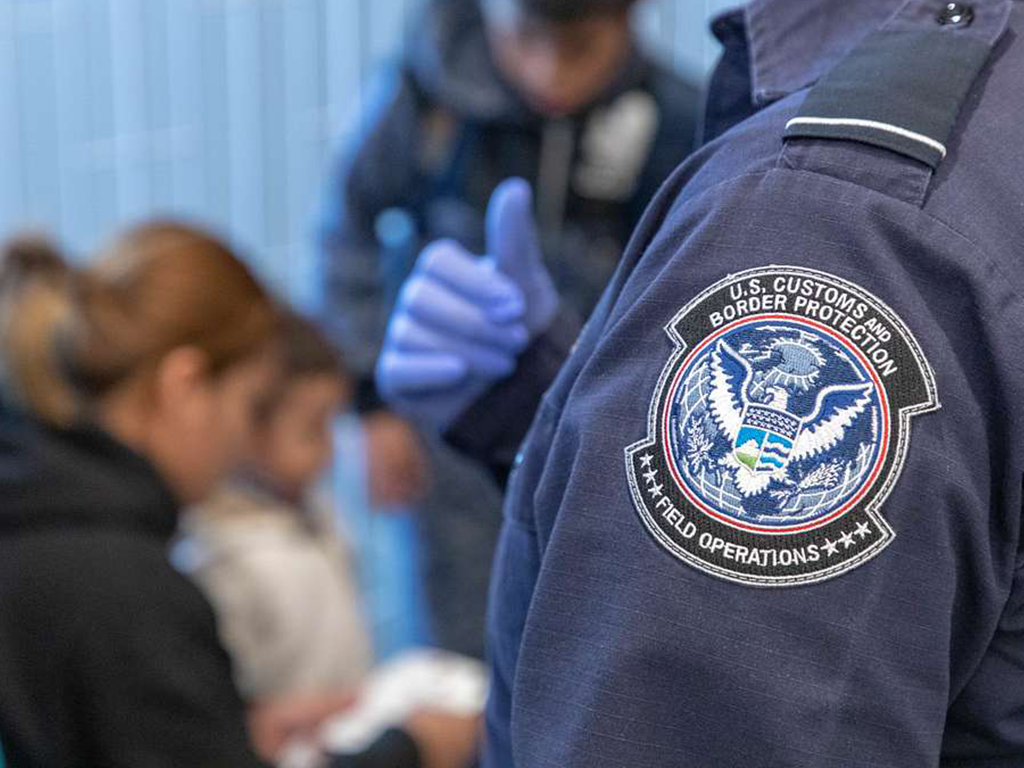Politics
Does the Constitution Require “Birthright Citizenship”?
The Constitutional clause is open to interpretation — there is no settled answer — and it is possible that Birthright Citizenship is not required.

The United States grants “birthright citizenship,” bestowing automatic citizenship to every baby born on American soil. This practice is derived from ambiguous language in the 14th Amendment to the U.S. Constitution, one of several post-Civil War amendments written to end all the remnants of slavery.
It is historically clear that the clause’s purpose was to establish, without dispute, that the former slaves and their offspring were full citizens. It is also well-argued that the enactment was a repudiation of the Supreme Court’s holding in the Dred Scott case, in which the High Court held that “a negro, whose ancestors were imported into [the United States], and sold as slaves,” whether enslaved or free, could not be an American citizen and therefore did not have standing to sue for freedom in federal court.
The citizenship clause in the 14th Amendment reads, “All persons born or naturalized in the United States, and subject to the jurisdiction thereof, are citizens of the United States and of the state wherein they reside.”
This language seems pretty cut and dry, but it’s not. Pay attention to the language within the clause that only bestows citizenship on those who are “subject to the jurisdiction” of the United States. Isn’t everyone standing upon American soil subject to its jurisdiction? Well, if that were the case, then the clause would be superfluous, and nothing in the Constitution is superfluous.
So let’s start with what is agreed: this exception relates to the children of a foreign diplomat and to the children of those American Indians who owed allegiance only to their respective tribes. So, is the child of a foreign diplomat a U.S. citizen? We don’t think so, but then again, that child, at the moment of birth, does not hold a diplomatic passport, so the status must relate to the status of his or her parents. Another example: what about an invading army? Suppose we had been invaded during WWII by Germany on the east coast or by Japan on the west coast. Suppose we defeated the invasion forces, but during the period of the invasion, some of the invader women had children on our soil, fathered by the invader men. Would these children be American citizens? Again, we look to the language that they must be “subject to the jurisdiction” of the United States to qualify under the 14th Amendment as automatic citizens. But to be sure, the tiny baby is not the invader, it is rather his or her parents who are the invaders, so again we are forced to look at the status of the parents to make this interpretation.
We don’t know how this issue would have resolved because this scenario never occurred, but we surmise that most Americans would not feel as if the children of invading soldiers should automatically become citizens. Perhaps this happened when the British invaded in 1812, but we just don’t know, and in any case that invasion predates the 14th Amendment. Let’s complicate this a bit by saying the child was born to an invading father and a citizen woman. How about the other way, an invading mother and a citizen father? Obviously this can get complicated.
But what if the invasion is not a military invasion, but rather an invasion by millions-upon-millions of people unlawfully walking over the border and taking up residence in the United States? What if many of these people continue to have allegience to the country from which they arrived, waiving their national flags as they cross into the United States?
The legalities here are far from clear. The language in the 14th Amendment seems clear, but it is premised on either the baby or its parents being “subject to the jurisdiction” of the United States, whatever that means. Obviously, it does mean something, so let’s dig deeper.
Many legal scholars have argued that“subject to the jurisdiction thereof” means that the new-born and its parents must owe full allegiance to the United States and to no other country. But if this were ever true, is it still true now that the United States allows its citizens to hold dual citizenship?
This language has gone before the Supreme Court twice. In 1898, the Supreme Court decided the case of United States v. Wong Kim Ark. Wong Kim Ark was born in San Francisco to parents who were both Chinese citizens, and who were lawfully in the United States. When he was 21, he travelled to China on a visit. Upon returning to the United States, he was denied entry on the grounds that he was not a U.S. citizen. The Supreme Court ruled 6-2 in favor of Wong Kim Ark, finding him to be a United States citizen under the 14th Amendment on the basis that he was born in the United States and that his parents were not “employed in any diplomatic or official capacity under the Emperor of China.” This case is obviously a strong precedent, but it also must be acknowledged that Wong Kim Ark’s parents were lawful permanent residents in the United States.
In 1884, in Elk v. Wilkins, a case dealing with the citizen status of American Indians, the Supreme Court decided that,
“The main object of the opening sentence of the Fourteenth Amendment was to settle the question, upon which there had been a difference of opinion throughout the country and in this Court, as to the citizenship of free negroes (Scott v. Sandford, 19 How. 393), and to put it beyond doubt that all persons, white or black, and whether formerly slaves or not, born or naturalized in the United States, and owing no allegiance to any alien power, should be citizens of the United States and of the state in which they reside. [citations deleted] This section contemplates two sources of citizenship, and two sources only: birth and naturalization. The persons declared to be citizens are “all persons born or naturalized in the United States, and subject to the jurisdiction thereof”. The evident meaning of these last words is not merely subject in some respect or degree to the jurisdiction of the United States, but completely subject to their political jurisdiction and owing them direct and immediate allegiance. And the words relate to the time of birth in the one case, as they do to the time of naturalization in the other. Persons not thus subject to the jurisdiction of the United States at the time of birth cannot become so afterward except by being naturalized, either individually, as by proceedings under the naturalization acts, or collectively, as by the force of a treaty by which foreign territory is acquired.”
Note that the Court, in these very old rulings — and there have been none recently — does not hold that the 14th Amendment grants citizenship to all who happen to be born here. Rather it discusses exceptions and qualifications to this aquisition of citizenship at birth. Note also that in Wong Kim Ark, the court only held that a child born of lawful permanent residents was born as a U.S. citizen.
To be clear, nothing about this is clear. There are plausible arguments on both sides, and the matter has yet to be decided with clarity.
But what is clear is that the circumstances have changed hugely since the 14th Amendment was passed by Congress in 1866 and was ratified in 1868. It is also clear that the purpose for which it was written — to allow the newly freed slaves and their progeny to enjoy full citizenship — is not the purpose for which it is being used today. Do these matter or are we to look strictly at the language, without guidance or limitation based on the original purpose?
Obviously, constitutional interpretation is a lengthy topic in itself, but there are those who would look at the Second Amendment and say it only relates to flintlocks and muskets, as those were the firearms that the founders were thinking of when they wrote that “the right to bear arms shall not be infringed.” But these same people generally do not exclude radio and TV from the rights given to the press in the First Amendment, though we only had hand-cranked printing presses at the time the First Amendment was ratified. Let’s look at a much more recent case: Many “January 6’ers” were convicted under a statute that made it a crime to obstruct or impede an official proceeding (in this case, the congressional counting of the electoral college ballots). That, indeed, was what the statute said, but the Supreme Court reversed these convictions 6-3, stating that the 2002 law under which the January 6’ers were prosecuted, was enacted in response to the Enron accounting scandal, and didn’t apply in these circumstances. The decision makes clear that, “It makes sense to read [the statutory language] in light of the history of the provision.”
But the Supreme Court often does not follow this method. Another clause in the 14th Amendment is the “privileges and immunities” clause: “No State shall make or enforce any law which shall abridge the privileges or immunities of citizens of the United States.” This, too, was adopted at the same time and for the same purpose as the citizenship clause (to bestow upon the newly freed former slaves the full benefits of American citizenship and to prohibit any state from saying otherwise), and as we well know, this clause has been hugely expanded, way beyond its original purpose. So why would the “birthright citizenship” clause be limited by its history, while the “privileges and immunities” clause not be constrained by its original purpose?
Thus, we are drawn back into the limiting language — “and subject to the jurisdiction thereof” — to determine whether the birthright citizenship clause indeed provides instant citizenship to the born-in-America children of the millions of illegal aliens / illegal immigrants / undocumented persons who have unlawfully crossed the border and entered the country, taking up permanent residence, and in many cases applying for financial and other benefits.
In 1868, when the 14th Amendment was ratified, the issues presented at our borders today were not present. The arrival of tens of millions of people certainly changes the calculus for this birthright citizenship clause.
So the question must be asked, if there is the political desire to change the clause or give it a more limited interpretation, whether this can be done by the President alone (using his executive authority), whether it requires Congressional legislation, or whether it cannot be changed except by constitutional amendment. Anything is possible, but whether done by Executive Order or by legislation, the matter will wind up in the Supreme Court, and in the end, the Court will make this determination. But we do believe there is a solid basis for the Court to determine that the millions of persons who have unlawfully crossed our borders do not owe allegience to the United States and are thus not “subject to the jurisdiction thereof,” and that their children are therefore not citizens of the United States simply by virtue of being born on American soil.












